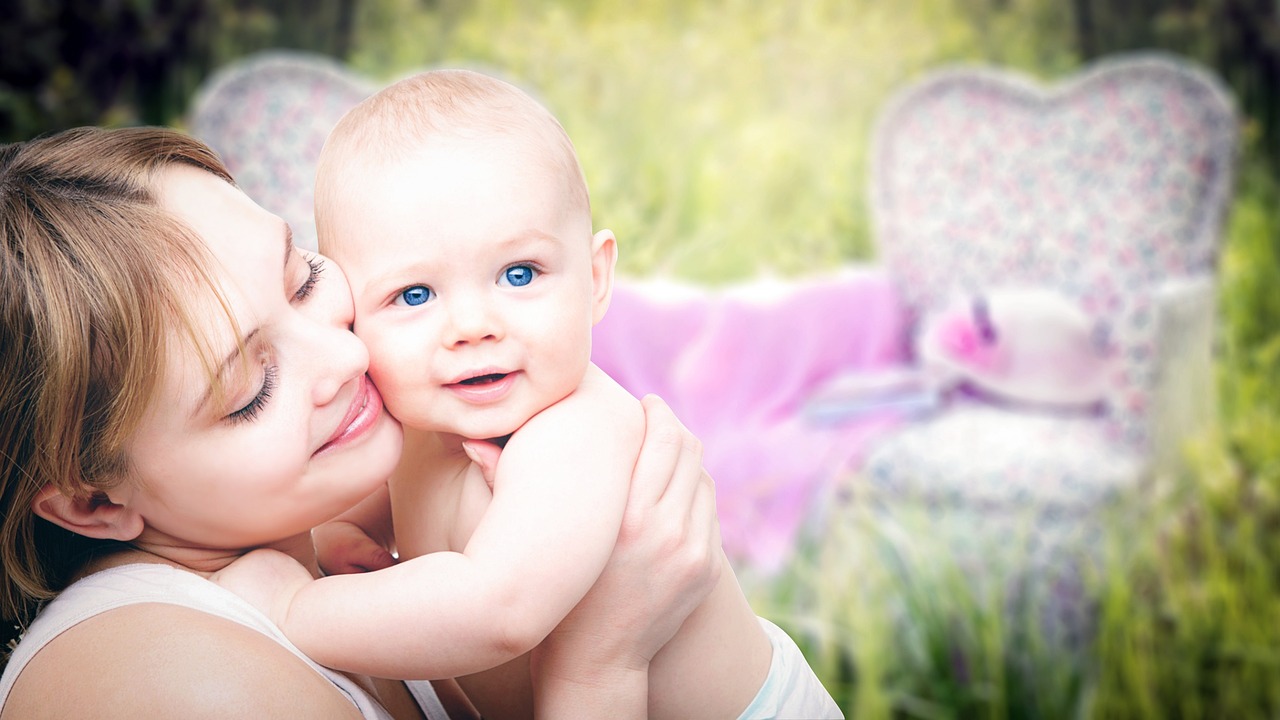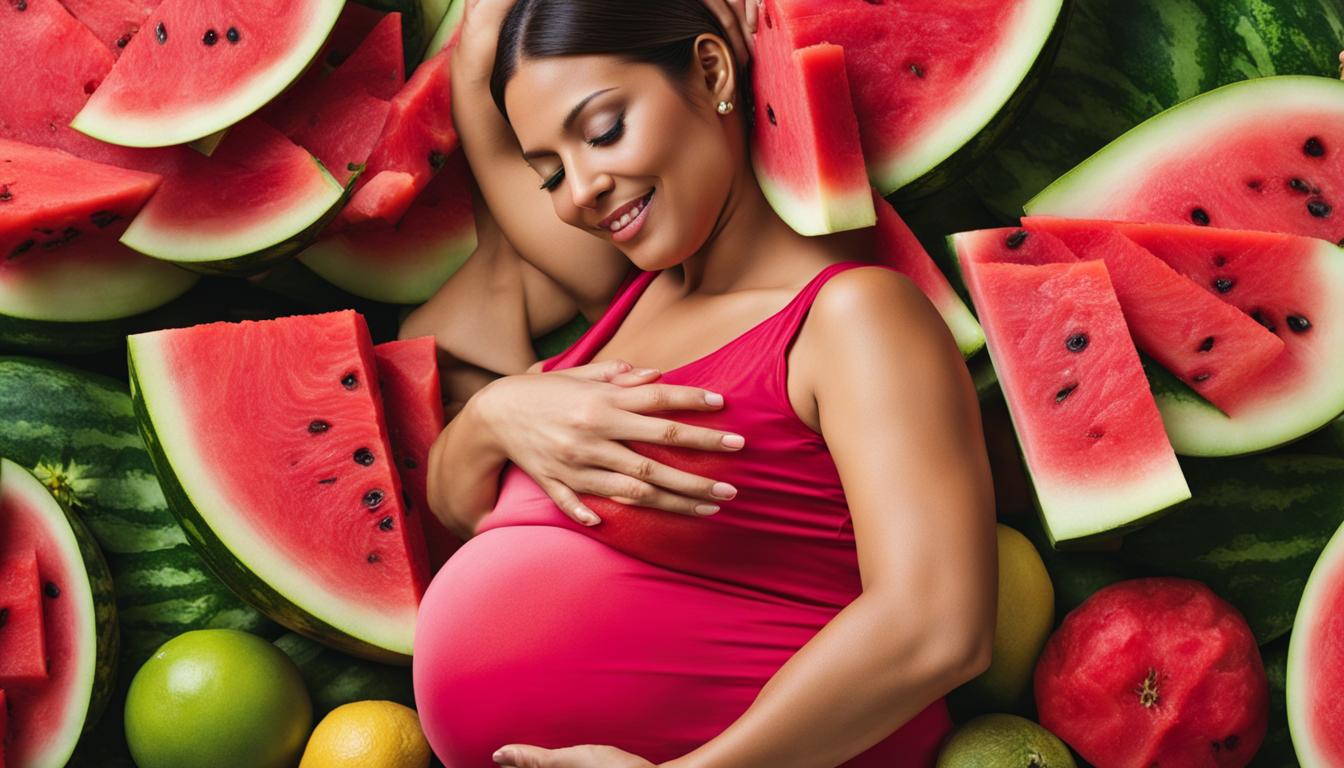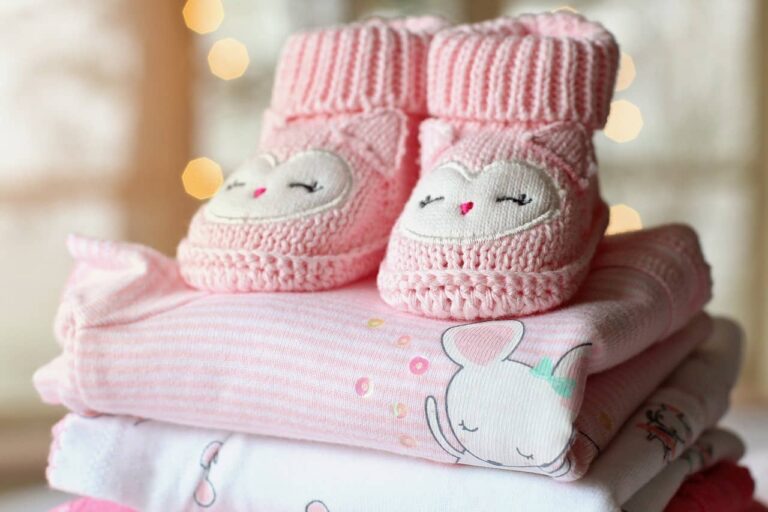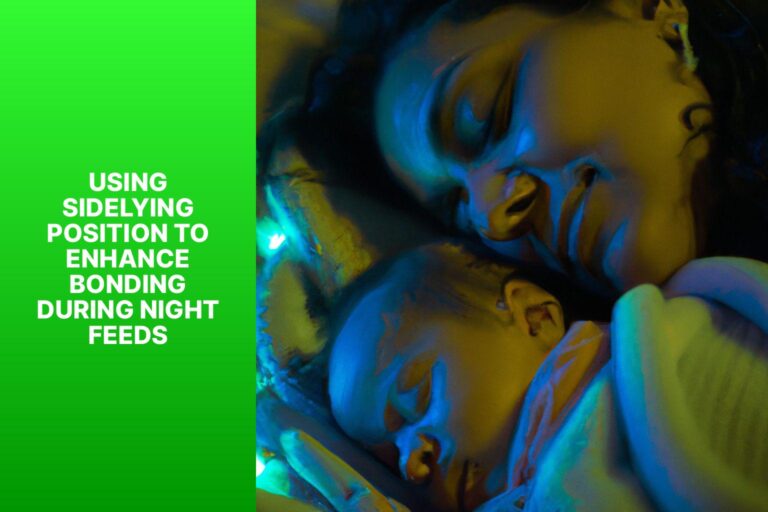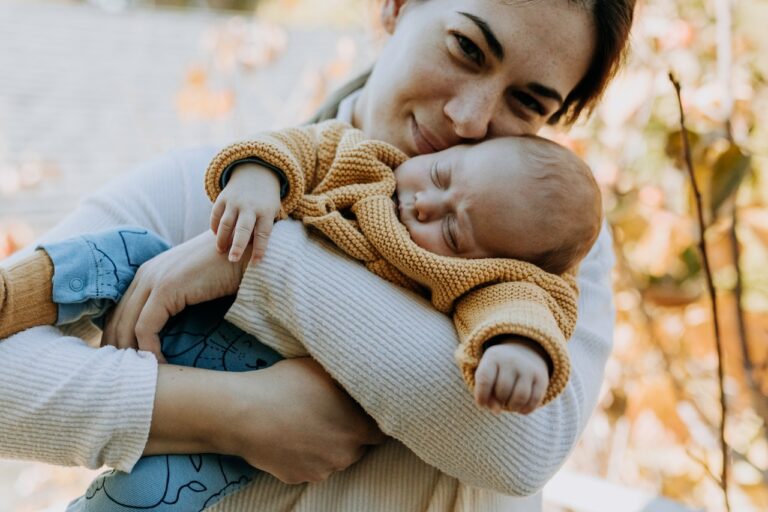I Got Pregnant While Breastfeeding: What There is to Know
It’s a beautiful moment when you welcome your little bundle of joy into the world. But what happens when another surprise comes knocking on your door while you’re still breastfeeding? Yes, it’s possible to get pregnant while breastfeeding even if you haven’t had a period yet! This unexpected turn of events can leave new parents feeling overwhelmed and unsure of what to do next. That’s why we’re here to share everything there is to know about getting pregnant while breastfeeding – from signs and symptoms to ways you can avoid it.
Unexpected Pregnancy While Breastfeeding
Pregnancy is the last thing on your mind when you’re busy taking care of your newborn. But is it possible to get pregnant even if you’re exclusively breastfeeding and haven’t had a period yet? Yes! Breastfeeding alone does not provide 100% protection against pregnancy.
The reason for this is simple – although breastfeeding delays the return of ovulation, there’s no guarantee that you won’t ovulate before your first postpartum period. This simply means that having unprotected sex during this time comes with a likelihood of sperm fertilizing an egg that may be released from your ovaries.
As mentioned, unexpected pregnancy while breastfeeding can be overwhelming and stressful. You may worry about the effect on your ability to breastfeed or how having another baby so soon will impact your family dynamics. It’s important to note that each situation is unique. What will work for someone else may not work for you.
If you discover you are pregnant while breastfeeding, don’t panic! Talk to your healthcare provider who can guide you through the best options available based on individual circumstances. Remember, being informed about the possibilities goes a long way in making better decisions moving forward.
Can I Get Pregnant While Breastfeeding and No Period
One common misconception is that you can’t get pregnant while breastfeeding and without a period. However, this is not entirely true. Pregnancy is a possibility even if you haven’t had your first postpartum period yet.
Breastfeeding releases hormones called prolactin, which suppresses ovulation. But the level of prolactin needed to prevent ovulation can vary from person to person, and it decreases as the baby grows older or starts eating solids.
Additionally, there may be times when you’re fertile before your first period returns. This means that even if you’re exclusively breastfeeding and have no menstrual cycle, there’s still a chance that you could conceive.
It’s important to remember that breastfeeding isn’t a form of birth control. If you aren’t ready for another pregnancy yet, it’s best to use additional methods such as condoms or other forms of contraception.
If you do find yourself unexpectedly pregnant while still breastfeeding and without a period, talk with your healthcare provider about what options are available for prenatal care and delivery.
Signs of Pregnancy While Breastfeeding
Breastfeeding can make it difficult to recognize the signs of pregnancy, as some symptoms may be masked or attributed to nursing. However, there are still some common signs that you should consider if you suspect you may be pregnant while breastfeeding.
Missed period: One of the most obvious signs is a missed period. If your menstrual cycle has returned but suddenly stops, this could indicate pregnancy. But keep in mind that breastfeeding itself can delay the return of your period and cause irregular cycles.
Breast tenderness: Another sign is breast tenderness or sensitivity beyond what is normal during lactation. This could be due to hormonal changes associated with pregnancy.
Fatigue & Nausea: Some women also experience fatigue and nausea when they become pregnant while breastfeeding. These symptoms may be more difficult to identify since new mothers often feel tired and nauseous from sleep deprivation and caring for a newborn.
Cravings: Pay attention to any unusual food cravings or aversions which could signal early pregnancy. If you notice any combination of these signs, consider taking a pregnancy test and speaking with your healthcare provider about options for prenatal care while continuing to breastfeed.
Is It Rare to Get Pregnant While Breastfeeding?
Many women believe that getting pregnant while breastfeeding is a rare occurrence. However, this is not entirely true. While it may be less likely to conceive during the exclusive breastfeeding period, it’s still possible.
The likelihood of pregnancy depends on various factors such as how often you breastfeed your baby and whether or not you have resumed menstruating. Women who exclusively breastfeed without supplementing with formula are less likely to get pregnant, but only if they haven’t had their first postpartum menstrual cycle yet.
It’s worth noting that even if you don’t have your period, ovulation can still occur unpredictably at any time after giving birth. Therefore, relying solely on breastfeeding as a form of contraception is not 100% effective.
Moreover, every woman’s body is different and can react differently after childbirth. Some women may experience an increase in fertility sooner than others, which could lead to unexpected pregnancies while breastfeeding.
In summary, getting pregnant while breastfeeding may be uncommon but not impossible. Therefore, using additional forms of contraception should always be considered when planning for family planning purposes.
How To Avoid Getting Pregnant While Breastfeeding?
Breastfeeding is a natural form of contraception, but it is not 100% effective. If you want to avoid getting pregnant while breastfeeding, there are several methods you can try.
Barrier methods: One option is to use barrier methods (contraceptives like condoms or diaphragms). These methods prevent sperm from reaching the egg and do not affect milk production or quality.
Hormonal birth control: Another option is to use hormonal birth control like pills, patches or rings. These methods work by preventing ovulation and thickening of the cervical mucus making it impossible for sperm to reach and fertilize the egg.
Fertility tracking: Additionally, fertility tracking can be an effective way to avoid pregnancy while breastfeeding. This involves tracking your menstrual cycle and avoiding intercourse during fertile days when ovulation occurs.
Wait 6 months after birth: It’s also recommended that you wait until your baby has started eating solid foods before relying on breastfeeding as a contraceptive method alone since this reduces prolactin levels in your body.
Ultimately, choosing a contraceptive method that works best for both you and your partner should involve open communication with each other and consultation with your healthcare provider.
Does Breastfeeding Reduce Pregnancy Symptoms?
One of the commonest questions asked by women who’ve gotten pregnant while breastfeeding is whether or not breastfeeding reduces pregnancy symptoms. Unfortunately, there’s no direct answer to this question.
Some women report experiencing fewer symptoms during their second pregnancy while still breastfeeding than they did during their first one. Others may notice more severe symptoms despite continuing to breastfeed.
It all depends on how your body adjusts to the new changes taking place inside it. Some women find that nursing can help alleviate nausea and morning sickness, making them feel better overall. However, others may experience a decrease in milk supply due to hormonal changes associated with pregnancy and might have difficulties nursing as before.
Therefore, it’s essential to listen carefully to your body and seek advice from a healthcare professional, if needed. With patience and care, you can successfully navigate through both pregnancies while enjoying the precious moments of motherhood!
Do Pregnancy Tests Work While Breastfeeding?
In summary, getting pregnant while breastfeeding is possible and not uncommon. Even if you haven’t had a period yet or are exclusively breastfeeding, it’s still important to use contraception if you don’t want another baby right away. Remember that every woman’s body is different and can react differently to pregnancy while breastfeeding.
If you suspect you are pregnant while breastfeeding, look out for the signs such as missed periods, breast changes, nausea, fatigue or food aversions. You can take a home pregnancy test to confirm but keep in mind that false negatives are a possibility due to the hormones associated with lactation.
It’s advisable to always consult with your healthcare provider about any concerns regarding fertility and birth control options. With proper planning and care, mothers who choose to breastfeed can safely enjoy the experience without worrying about an unexpected pregnancy.
Does Breastfeeding Reduce Pregnancy Symptoms?
The topic of whether breastfeeding reduces pregnancy symptoms is subject to ongoing research. Some studies suggest that breastfeeding could help alleviate certain discomforts such as nausea, vomiting, and fatigue during early pregnancy. However, others have found little to no correlation between the two.
A study published in the Journal of Obstetrics and Gynecology Canada revealed that while some mothers reported feeling more energetic and less nauseous when they breastfed their infants during pregnancy, there was no significant difference in overall symptom severity compared to non-breastfeeding mothers.
Additionally, it is important to note that every woman’s experience with both breastfeeding and pregnancy symptoms can vary greatly depending on individual factors such as age, health status, lifestyle habits and genetics. Therefore, further research is necessary before we can make conclusive statements about the relationship between breastfeeding and reduced pregnancy symptoms.


